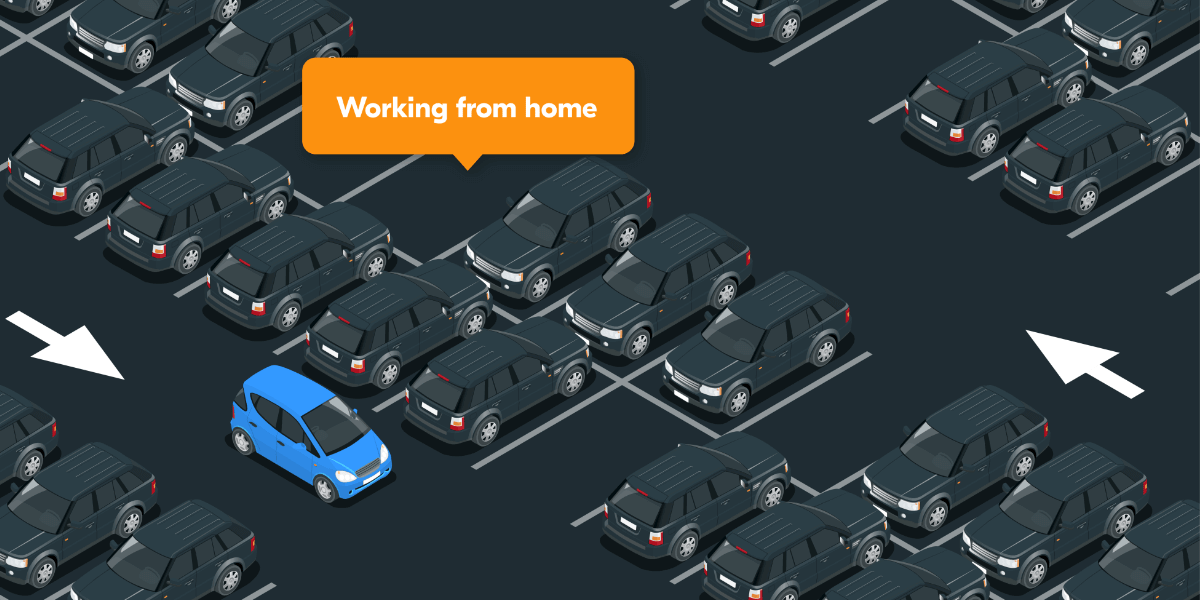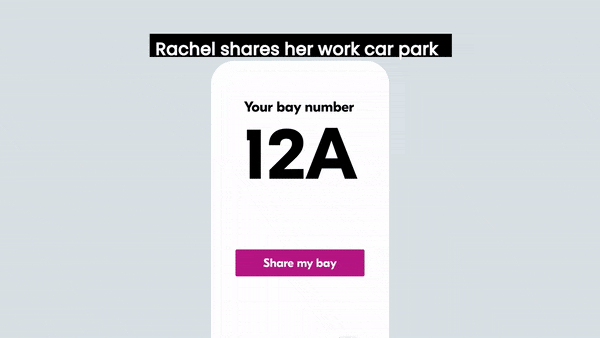Flexible parking is more necessary than ever with flexible working
To suit a changing work landscape, businesses need a flexible system for their car park

Flexible and remote working have been around for decades. They’re widely recognised as effective ways to work, retain employees, reduce traffic emissions and achieve better work-life balance. However, it’s 2020 that will be known as the year that flexible and remote working became the norm.
For many companies, flexible working has led to drastic changes in how the workplace functions. Businesses which previously saw hundreds of employees in the office every day now have five or ten members of staff working onsite.
Along with changes to the office environment, businesses will be seeing significant differences in how their parking space is being used. A car park that was previously full every day may suddenly be half-full, or even nearly empty. Managing that change requires fresh thinking, more flexible parking, and a willingness to adapt.
The need to redistribute parking space
Pre-Covid, many businesses had a parking lot distribution that looked something like IAG Christchurch: 80% of their parking spots were allocated to specific staff members, and 20% were available for casual use.
After the change to a more flexible working policy, IAG changed their model to 20% allocated to specific staff, and 80% available for casual use. (Using Parkable, they were able to make that change in just 30 minutes).
Why?
Because if a company has most or all of its parking spaces allocated to execs, many of whom are only in the office part-time, there’s a significant waste of parking resources. It can also be frustrating for staff who are coming into the office to see an empty car park. This is especially the case when they’re using far away, expensive street parking or commercial parking lots instead.
Flexible parking solutions
One option which businesses are taking is to disband the parking allocation system, and make the car park open to all staff members. This ensures that the car park is being used and that the resource is available to your staff.
However, giving more people the ability to use the car park can cause issues in security, access, and general management, so you may want to consider a flexible parking management system like Parkable. Parkable’s system gives staff complete visibility over car park occupancy and allows people to book a park in advance. That means that staff don’t show up to find the car park full.
You can also achieve more flexible parking by allocating some parking spots to specific individuals, while keeping the rest ‘casual’ for all staff. Or, if you want to retain your allocation system, with Parkable you can seamlessly share those allocated parks when they aren’t needed by their assigned staff member. If you’re interested in how that works, check out our quick video.

If you have paid staff parking...
At many companies, parking is organised with a salary-sacrifice model. In this system, a small number of (generally manager-level) employees are able to give up part of their salary for an onsite parking spot.
However, as some of our clients have recently seen, a salary-sacrifice system is likely to fail when people are partly remote. A parking spot is no longer as valuable when people don’t drive into work everyday. For this reason, many employees will want to give up their parking spot for the extra income.
While that suits employees, for businesses it means a sudden loss in parking revenue.
Retaining parking revenue or reducing costs
One way to maintain a source of revenue from the car park is to get rid of the salary-sacrifice model. Instead, share the parking spots among staff for a casual, daily parking fee. The benefit? Businesses can maintain revenue, plus parking is available for whichever staff would like to park onsite.
- Charging $2000 per annum for an allocated parking spot is equal to charging $8 per day for casual parking.
A platform like Parkable is built to manage daily parking fees, so the transition can be seamless and easy for both staff and administrators.
If you still aren’t filling the car park, consider reducing the car park lease. Or, you can sublet part of the car park to neighbouring businesses or the public. (Yes, Parkable can help you with that, too!) These options provide the opportunity to shrink overheads.
- In Auckland’s CBD, businesses easily spend $60 - $70 per week on every leased parking spot.
- By reducing a car park lease by 15 bays, there’s an annual saving of $54,600.
Fair and flexible parking
For some, the opportunity to re-think staff parking can lead to a stronger focus on fairness and more equal distribution of employee benefits. Rather than viewing parking as a perk for senior staff, businesses can see parking as an amenity that gets shared among all staff.
This could involve the changes above. Some companies are also moving to rostering, so that each employee is guaranteed a parking spot some of the time. At My Food Bag, for example, every employee can park on-site at least one day per week.
The importance of sharing fairly among staff is growing for many businesses and organisations. That’s why Parkable is building a solution to sit alongside the other elements of flexible parking.
By creating a seamless process for sharing, allocating, and paying for parking, companies can use their car park far more efficiently, recover costs, and create better commuting experiences for those driving in.
Suggested articles
Solve your parking problems
If you have workplace parking spots and want to...
- Improve employee parking experiences
- Reduce car park admin
- Make better use of your space
- Align your parking with a flexible working culture
- Implement hardware solutions
...feel free to get in touch!
 Blog
Blog